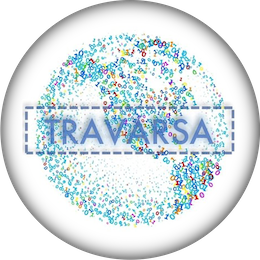Elevate your career with Front-End Web Development. From HTML to frameworks, certifications guide....
Read MoreHow to start your career as a Full Stack Developer ?

Embark on a journey into the dynamic world of Full Stack Development. Uncover essential skills, tools, and frameworks to master both front-end finesse and back-end complexities.
Whether you’re a seasoned developer or a coding enthusiast, join us for insights that elevate your skills and career.
Who is a Full Stack Web Developer ?
A Full Stack Developer is a versatile professional proficient in both front-end and back-end technologies, capable of creating and maintaining entire web applications.
This skilled individual possesses a comprehensive understanding of various programming languages, frameworks, and tools, enabling them to handle the complete development process—from designing user interfaces and implementing interactive features to managing databases and server-side logic. A Full Stack Developer’s expertise spans the entire technology stack, allowing them to seamlessly navigate and contribute to various aspects of a project, making them invaluable assets in the dynamic and multifaceted field of web development.
As technology evolves, the demand for professionals who can seamlessly navigate both front-end and back-end development continues to soar. In this comprehensive guide, we unveil a step-by-step roadmap, encompassing the fundamental building blocks and advanced tools necessary for success. From mastering HTML and CSS to diving into robust back-end frameworks, this roadmap ensures you’re equipped to tackle the dynamic challenges of Full Stack Development.
How to get started as a Full Stack Web Developer ?
Step 1: Establish the Foundation
- Learn Fundamentals:
- Programming Languages: Begin with foundational languages like HTML, CSS, and JavaScript.
- Tools: Utilize text editors like Visual Studio Code or Atom.
- Understand Version Control:
- Git: Learn Git for version control.
- GitHub/Bitbucket: Familiarize yourself with repositories for collaboration.
Step 2: Front-End Development
- Master HTML and CSS:
- HTML5 and CSS3: Stay updated with modern standards.
- Responsive Design: Learn frameworks like Bootstrap or Tailwind CSS.
- Learn JavaScript:
- ES6+: Master modern JavaScript.
- DOM Manipulation: Understand interaction with the Document Object Model.
- Front-End Frameworks:
- React.js or Angular: Choose a framework for building dynamic user interfaces.
- Vue.js: An alternative to React and Angular.
Step 3: Back-End Development
- Server-Side Language:
- Node.js (JavaScript), Python, Ruby, or Java: Choose a language for server-side development.
- Server Framework:
- Express.js (Node.js), Django (Python), Ruby on Rails (Ruby), or Spring Boot (Java): Frameworks to build robust server-side applications.
- Database Management:
- SQL or NoSQL databases: MySQL, PostgreSQL, MongoDB, etc.
- API Development:
- RESTful APIs: Understand API design principles.
- GraphQL: Explore modern API alternatives.
Step 4: Database Mastery
- Database Optimization:
- Normalization and Indexing: Optimize database performance.
- ORM/ODM:
- Sequelize (Node.js), SQLAlchemy (Python), or Mongoose (Node.js): Object-Relational Mapping tools for database interaction.
Step 5: Full Stack Integration
- Full Stack Frameworks:
- MERN Stack (MongoDB, Express.js, React.js, Node.js) or MEAN Stack (MongoDB, Express.js, Angular, Node.js): Full stack frameworks for end-to-end development.
Step 6: DevOps and Deployment
- Basic DevOps Skills:
- Docker: Containerization for consistent deployment.
- CI/CD Tools: Jenkins, Travis CI, or GitLab CI.
- Cloud Platforms:
- AWS, Azure, or Google Cloud: Learn to deploy applications on cloud servers.
Step 7: Testing and Debugging
- Testing Frameworks:
- Jest (JavaScript), PyTest (Python), or JUnit (Java): Implement unit and integration testing.
- Debugging Tools:
- Browser Developer Tools, Postman, or IDE Debuggers: Debug code efficiently.
Step 8: Continuous Learning and Specialization
- Stay Updated:
- Follow Industry Trends: Regularly update skills based on emerging technologies.
- Specialize:
- Choose a Niche: Specialize in areas like mobile development, DevOps, or AI as per interest.
Related Certifications:
Certifications can enhance a Full Stack Developer’s skills and credibility. Here’s a list of recommended certifications:
- AWS Certified Solutions Architect – Associate:
- Offered by Amazon Web Services, it validates skills in designing distributed systems.
- Microsoft Certified: Azure Solutions Architect Expert:
- Demonstrates expertise in designing solutions on the Microsoft Azure platform.
- Google Cloud Professional Cloud Architect:
- Validates proficiency in designing, developing, and managing Google Cloud solutions.
- Certified Kubernetes Administrator (CKA):
- Recognizes skills in container orchestration using Kubernetes.
- Docker Certified Associate:
- Demonstrates proficiency in Docker containerization technology.
- Certified Ethical Hacker (CEH):
- Provides insights into ethical hacking and security, enhancing a developer’s understanding of potential vulnerabilities.
- CompTIA Security+:
- A foundational certification covering essential cybersecurity skills.
- MongoDB Certified Developer Associate:
- Validates skills in designing and building applications using MongoDB.
- Microsoft Certified: Azure DevOps Engineer Expert:
- Demonstrates expertise in implementing DevOps practices using Microsoft Azure technologies.
- CompTIA Project+:
- Certification covering project management skills, beneficial for developers involved in project lifecycles.
- Scrum Alliance Certified ScrumMaster (CSM):
- Validates understanding of Scrum principles and practices, useful for Agile development environments.
- Certified Information Systems Security Professional (CISSP):
- A globally recognized certification for information security professionals, enhancing security knowledge.
- Certified Full Stack Developer (CFSD):
- Some institutions offer a comprehensive certification specific to Full Stack Development skills.
- React Developer Certification:
- Provided by platforms like freeCodeCamp, it validates proficiency in React.js.
- Node.js Certification:
Various organizations offer certifications for proficiency in Node.js development. Remember to tailor your certification choices based on your specific technology stack and career goals. Certifications can provide a structured learning path and validate your skills for potential employers.
Conclusion :
How to start your career as a Full Stack Developer ?
Launch your Full Stack Developer career with our comprehensive guide. Explore essential skills,....
Read MoreTop 10 Digital Forensics Strategies
Unlock the power of Marketing Automation with Machine Learning. Elevate your strategies, engage....
Read MoreComprehensive Guide to JavaScript Frameworks
Explore the diverse world of JavaScript frameworks and libraries for modern web development.....
Read MoreNo-code/Low-code Development Benefits and Platforms
Discover the benefits of No-code/Low-code Development and explore leading platforms in this revolutionary....
Read MoreGuerilla Marketing Strategies – Tools and Tactics
Discover the power of guerrilla marketing strategies – from viral stunts to interactive....
Read More





